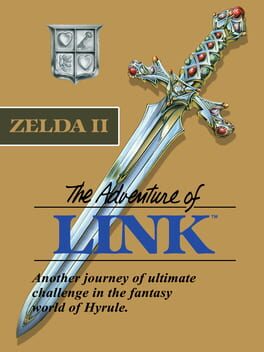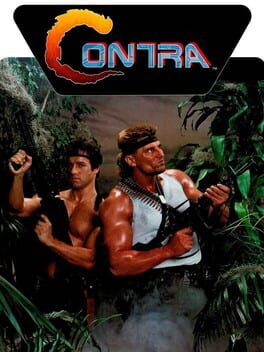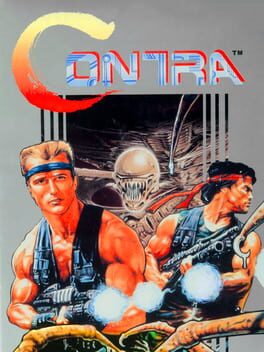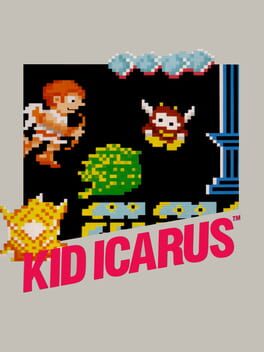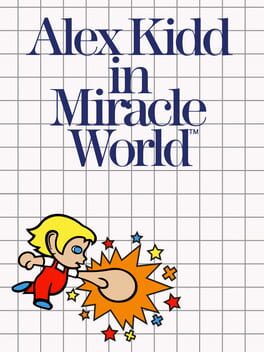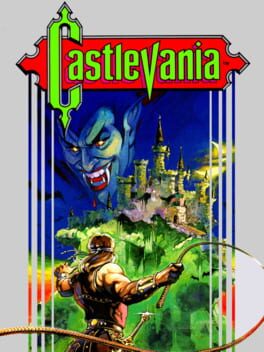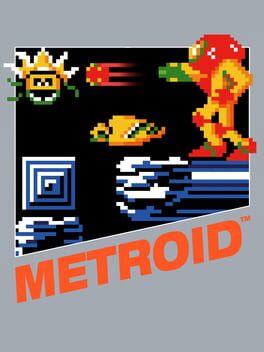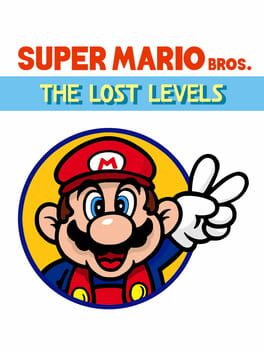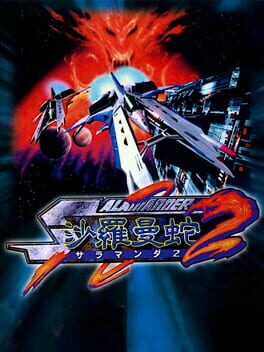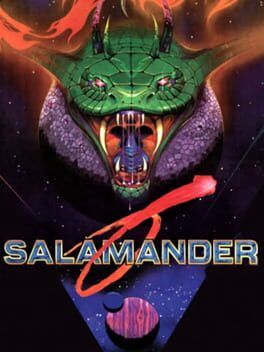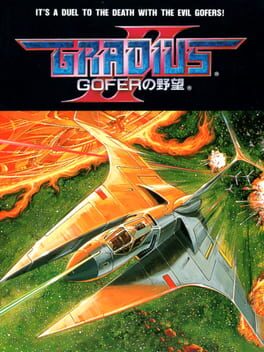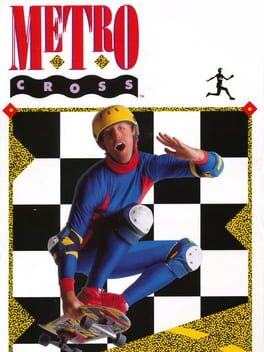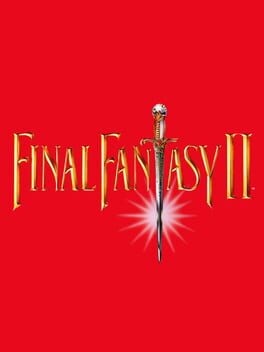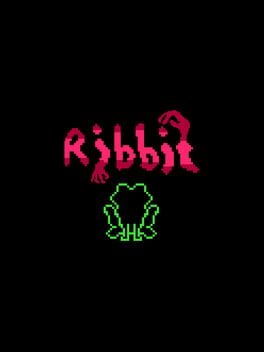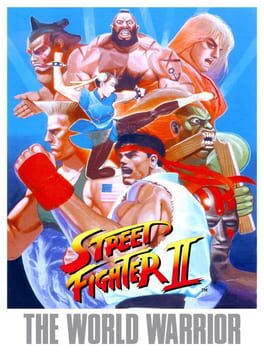TheMaxine
I wouldn't be opposed against Zelda trying out something like this again. From a presentation and concept standpoint, I really like Zelda II. The upgrades when you leveled up scratched the right parts of my brain, and I'm one of those weirdos that actually liked the weighty combat system. Each palace had a sizable amount of fun rooms to traverse, and I looked forward to tackling each one.
I can't deny though, without cheats, I don't think I would have appreciated this one as much. In particular, I used the Zelda II Redux hack which added a lot of QoL, most importantly better checkpoints and balancing. Without that, I have no doubt in my mind that this game is annoying as fuck.
One thing I sorely miss from Zelda 1 are maps. There are none here, and the palaces don't have enough distinct landmarks at times to prove memorable, so, online maps were in order.
My greatest mistake was heading into the final dungeon without realizing you needed the final spell to defeat the boss. Imagine doing that entire gauntlet, and then realizing you're gonna have to do it again.
The thing about Zelda II nowadays is that by itself, you're likely to play a gruellingly punishing game with dungeons that are more difficult to traverse than the likes of the first game. However, the Zelda community is lovely in this regard, as it has taken the painstaking task of providing you with many ways to fix this game into something fun. There's the aforementioned Redux hack, but there's also a fanmade PC version of the game, called "Zelda 2 Enhanced Edition" that brings similar QoL changes, among new ones such as a map system, and additional neat areas to explore. There's many good ways to play this game. But preferably, discount the original as one of them.
I can't deny though, without cheats, I don't think I would have appreciated this one as much. In particular, I used the Zelda II Redux hack which added a lot of QoL, most importantly better checkpoints and balancing. Without that, I have no doubt in my mind that this game is annoying as fuck.
One thing I sorely miss from Zelda 1 are maps. There are none here, and the palaces don't have enough distinct landmarks at times to prove memorable, so, online maps were in order.
My greatest mistake was heading into the final dungeon without realizing you needed the final spell to defeat the boss. Imagine doing that entire gauntlet, and then realizing you're gonna have to do it again.
The thing about Zelda II nowadays is that by itself, you're likely to play a gruellingly punishing game with dungeons that are more difficult to traverse than the likes of the first game. However, the Zelda community is lovely in this regard, as it has taken the painstaking task of providing you with many ways to fix this game into something fun. There's the aforementioned Redux hack, but there's also a fanmade PC version of the game, called "Zelda 2 Enhanced Edition" that brings similar QoL changes, among new ones such as a map system, and additional neat areas to explore. There's many good ways to play this game. But preferably, discount the original as one of them.
1987
To me, it's just an inferior version of the NES original. Less content, and a visual presentation, which although is graphically improved, has more awkward animations and a somewhat bigger character, which also means a bigger hitbox that makes dodging things harder. If I was in an arcade back in the 80's and this was there, I'd pop in a quarter, but in the modern age, I'd rather just go back to the console version.
1988
I really like this one. It's a solid start to the franchise, and arguably, still one of the most approachable ones due to its simplicity. The whole package lasts less than 30 minutes without deaths, but offers a good variety of levels throughout. The shooting feels great, and the spread shot reigns as the king of run 'n gun weapons. It's a little like a handheld game, just something you pick up and immediately get into.
But of course, the difficulty here has to be addressed. You could beat this within 30 minutes, but if you're intending to play the game as intended, that could be a whole lot longer. While its short length does lean itself into doing several runs to see how far you can get this time, your enjoyment does weigh on whether you're willing to master that type of trial 'n error gameplay.
Me personally, I use the Konami code to give myself 30 lifes. What you could do though, is start off with that for a practice run, then take the training wheels off after all and go for that 2-lifes run. Whether you play it casually or for the sake of mastering it though, it's fun either way, one of the NES must-plays.
Also I will say, you might wanna consider grabbing the Japanese release sometime, as I've only just recently learned that the USA version cuts out a shocking amount of visual flair, including cinematics and visual effects in stages. It was kind of like discovering a missing piece of Contra after 15 years of playing it.
But of course, the difficulty here has to be addressed. You could beat this within 30 minutes, but if you're intending to play the game as intended, that could be a whole lot longer. While its short length does lean itself into doing several runs to see how far you can get this time, your enjoyment does weigh on whether you're willing to master that type of trial 'n error gameplay.
Me personally, I use the Konami code to give myself 30 lifes. What you could do though, is start off with that for a practice run, then take the training wheels off after all and go for that 2-lifes run. Whether you play it casually or for the sake of mastering it though, it's fun either way, one of the NES must-plays.
Also I will say, you might wanna consider grabbing the Japanese release sometime, as I've only just recently learned that the USA version cuts out a shocking amount of visual flair, including cinematics and visual effects in stages. It was kind of like discovering a missing piece of Contra after 15 years of playing it.
1986
Listen, I'll try to make this review shorter than this game's levels. The summary of the review is... cut the levels by half, and this could've been an infinitely better game.
As much as the upgrade systems were a little difficult to grasp (that's on me for not reading the manual...), I did enjoy the feeling of scaling my way up the vertical stages, and strategically taking down the enemies in my way. The dungeon-like levels and horizontal ones weren't too bad either.
My willingness to replay this game again however, is ruined by the exhausting length of each stage, its layout copy-pasted several times to pad things out. If they wanted Kid Icarus to feel like a grand adventure through how big it is, that's fine, but you're gonna have to do a lot more than this. As it stands, there's too much here for too little gain.
As much as the upgrade systems were a little difficult to grasp (that's on me for not reading the manual...), I did enjoy the feeling of scaling my way up the vertical stages, and strategically taking down the enemies in my way. The dungeon-like levels and horizontal ones weren't too bad either.
My willingness to replay this game again however, is ruined by the exhausting length of each stage, its layout copy-pasted several times to pad things out. If they wanted Kid Icarus to feel like a grand adventure through how big it is, that's fine, but you're gonna have to do a lot more than this. As it stands, there's too much here for too little gain.
What an odd game this one is. And not like, "wow, it's so wacky and kooky!", I mean more like "I don't know the proper way to formulate my opinion on this thing."
It almost gets there, I mean, it has variety to spare. You make your way through vertical levels, horizontal ones, plus you've got some dungeons, and neat little powerups, and decent controls, and catchy music... So what is it about this game that doesn't stack up to something like Mario 1? I can't place my finger on it.
I think part of it is that very expectation of matching up to Mario 1's quality, which Alex Kidd isn't necessarily attempting to do. It's a slower take on the platformer genre, which emphasizes collecting things a lot more. You're gonna want to stop in your tracks frequently to break open those blocks and amass the cash for the powerups required. I don't usually mind systems like this, but I feel it repeteadly breaks the flow of the game here.
There's also the more subjective matter of the level design being nowhere near as memorable as the plumber contemporary, but there's also the most obvious complaint I could throw at this game, the boss fights. It's a Rock-Paper-Scissors game, everytime. Not a test of your skill, not a test of anything you have learned throughout, it's pure luck. And I feel that makes the game come off as somewhat unconfident in its own gameplay system, like there's a setup here, but no payoff.
There's something... mindless about the whole thing. A lot of effort was put in, but so little of it truly stuck the landing. Putting it another way perhaps, Alex Kidd is a game full of ideas, but very little of them actually connect in a cohesive way. There's a reason why this franchise didn't last.
It almost gets there, I mean, it has variety to spare. You make your way through vertical levels, horizontal ones, plus you've got some dungeons, and neat little powerups, and decent controls, and catchy music... So what is it about this game that doesn't stack up to something like Mario 1? I can't place my finger on it.
I think part of it is that very expectation of matching up to Mario 1's quality, which Alex Kidd isn't necessarily attempting to do. It's a slower take on the platformer genre, which emphasizes collecting things a lot more. You're gonna want to stop in your tracks frequently to break open those blocks and amass the cash for the powerups required. I don't usually mind systems like this, but I feel it repeteadly breaks the flow of the game here.
There's also the more subjective matter of the level design being nowhere near as memorable as the plumber contemporary, but there's also the most obvious complaint I could throw at this game, the boss fights. It's a Rock-Paper-Scissors game, everytime. Not a test of your skill, not a test of anything you have learned throughout, it's pure luck. And I feel that makes the game come off as somewhat unconfident in its own gameplay system, like there's a setup here, but no payoff.
There's something... mindless about the whole thing. A lot of effort was put in, but so little of it truly stuck the landing. Putting it another way perhaps, Alex Kidd is a game full of ideas, but very little of them actually connect in a cohesive way. There's a reason why this franchise didn't last.
1986
Sometimes, being simple pays off. And even other times, being simple paves way for a deceptively more complex game, and that's Castlevania.
It's short, it's sweet, it's Arcadey as can be, but its controls turn it into something far more slow-paced than your Striders or Contras. Castlevania demands a little more strategy, rushing in is more likely to kill you. It's all about observing your enemies, their patterns, and learning when's the right time to attack, or back off.
There's no air control, you're pretty vulnerable while climbing stairs, and your sub-weapons run on limited ammunition. Learning to work with all of this however, is a satisfying experience, and shows the strengths of making the player intuitively adapt to what the game wants, not the other way around. Castlevania's moveset is not a weakness, it's a huge rule.
Complaint-wise, I don't like the timer. It's a leftover from the arcade mentality, and it unfortunately pressures you into being on the move, which I think goes against what the level design itself demands, to slow down and think things through. Some of the graphics are a bit on the muddy side as well, though I get the feeling that's because I'm not playing on a CRT monitor, thus, the pixelization stands out a lot more.
Again, I must stress that Castlevania is a short game. Be patient with it, try to understand what it wants out of you, and it won't take that long before you'll be knocking each level down. It's a good game to start with, though, if you're looking for more refined classic-style Castlevanias, Super Castlevania IV, Rondo of Blood, or Castlevania Bloodlines are good starting points too.
It's short, it's sweet, it's Arcadey as can be, but its controls turn it into something far more slow-paced than your Striders or Contras. Castlevania demands a little more strategy, rushing in is more likely to kill you. It's all about observing your enemies, their patterns, and learning when's the right time to attack, or back off.
There's no air control, you're pretty vulnerable while climbing stairs, and your sub-weapons run on limited ammunition. Learning to work with all of this however, is a satisfying experience, and shows the strengths of making the player intuitively adapt to what the game wants, not the other way around. Castlevania's moveset is not a weakness, it's a huge rule.
Complaint-wise, I don't like the timer. It's a leftover from the arcade mentality, and it unfortunately pressures you into being on the move, which I think goes against what the level design itself demands, to slow down and think things through. Some of the graphics are a bit on the muddy side as well, though I get the feeling that's because I'm not playing on a CRT monitor, thus, the pixelization stands out a lot more.
Again, I must stress that Castlevania is a short game. Be patient with it, try to understand what it wants out of you, and it won't take that long before you'll be knocking each level down. It's a good game to start with, though, if you're looking for more refined classic-style Castlevanias, Super Castlevania IV, Rondo of Blood, or Castlevania Bloodlines are good starting points too.
1986
I used a romhack that adds a map into the game, which really came in handy for navigating its maze-like interiors. Having played the GBA remake a ton of times also helps, so I had a general idea of where I was at most times. This eliminated one of the game's biggest hurdles, the worry of getting lost. That just leaves the gameplay.
In short, it's okay, albeit lacking in moves that make dealing with certain enemies a pain. There are many small-sized enemies, but no crouch button to be able to shoot them. Some enemies move erratically, but you're stuck with a tiny pebble shooter for the whole game, so good luck consistently hitting them. Your moveset just seems to not work with the game's actual design at times, and I think you'll feel that all the more strongly the more Metroid games you have under your belt.
I do like the music, though, and the overall exploration is alright for a 1986 game. The Screw Attack is still a godsend of an ability even this early on. There's bits of fun, among the various bits of inconvenience. I think it's worth playing once as a Metroid fan, but for your first time experience, look into the later games instead, at least from Super Metroid onward.
In short, it's okay, albeit lacking in moves that make dealing with certain enemies a pain. There are many small-sized enemies, but no crouch button to be able to shoot them. Some enemies move erratically, but you're stuck with a tiny pebble shooter for the whole game, so good luck consistently hitting them. Your moveset just seems to not work with the game's actual design at times, and I think you'll feel that all the more strongly the more Metroid games you have under your belt.
I do like the music, though, and the overall exploration is alright for a 1986 game. The Screw Attack is still a godsend of an ability even this early on. There's bits of fun, among the various bits of inconvenience. I think it's worth playing once as a Metroid fan, but for your first time experience, look into the later games instead, at least from Super Metroid onward.
Listen, I get it's meant to be hard. But I just don't think Mario 1's controls were built for this kind of difficulty. You really have to come to terms with your limited air control in this one, in a way that Mario 1 didn't need you to. Perhaps that's also meant to be the point. In which case, it's not a matter of Lost Levels being bad, it's more likely that I just do not have the patience to learn it. And that's okay. This'll just indeed have to be a game for Super Players.
1996
1986
If you liked the first Gradius, good news, it's more of that. It's just as punishing, and it's just as satisfying to get that fully upgraded ship. I also really liked the music in this one, that song at the beginning of each stage really inspired me to keep going. Overall, a nice little shoot'em up, though not one that I could beat without save states.
1985
It's a little fun at first, and there's a catchy song in it. But, soon enough, Arcade difficulty starts showing itself. That, or I'm just stupid. And I did feel really stupid, because no matter how well I felt I was doing, I would always run out of time at a specific point of the game. I couldn't figure out how to improve from thereon, so I dropped it.
1991
I've already experienced Final Fantasy 4 through the Pixel Remaster edition, but I wanted to go back to the SNES original for the sake of the aesthetic, seeing as the remasters all look pretty identical to each other, and just to see how does the original stack up. Expect the review to be described from this kind of perspective.
Obviously, it's the first version of the game, so you're not gonna get any of the remaster's conveniences. Battles are slower, overall menu navigation is slower, there's no run button... one of the more surprising things missing is the ATB bar. Like, the ATB system is in this game, there's just no visual indicators for when will your character be able to have their turn.
The localization is butchered to hell and back, but from my viewpoint, it's a bonus that makes the game's story more entertaining. And you're gonna want that, because the story by itself has pretty barebones characterization, and a comedically frequent amount of death scenes to increase the drama. I'll take all the narm I can get.
So far I've been a bit on the negative side though, is this still a good version of the game to play? Yeah, sure, as long as you're the patient sort. A fast forward button helps too, but patience is more important here. It is an RPG after all. The difficulty is perfectly managable, and considerably better balanced than any of the NES Final Fantasies. I think the only part I didn't like was the final dungeon, which smothered you with enemies that took forever to kill, and made for an incredibly long and exhausting dungeon. You might wanna consider splitting it into two sessions instead of trying to knock out all of it at once. I remember this dungeon being a bit tough in the remaster, but not to this extent.
I think your enjoyment of this version also verges on just how much you care about getting the "true" version, which, well, this one's not even it, because they nerfed Final Fantasy 4's difficulty when they brought it to the west and renamed it to Final Fantasy 2. So, you'd likely have to dabble in some rom hackery to get the real original version of Final Fantasy 4, but I don't have it in me to play a harder RPG than this right now, I'm a coward and like these things to be on the lax side.
Otherwise, if you just want the most QoL-like version of FF4, the Pixel Remaster will do you fine. It's faster, and surprisingly faithful now that I can compare the two. Though, I haven't played any of the other versions of FF4, so it's possible there might be even better versions of the game. Feel free to recommend them in the replies if you have any. Either way, I'll be getting to all of them in the future.
Obviously, it's the first version of the game, so you're not gonna get any of the remaster's conveniences. Battles are slower, overall menu navigation is slower, there's no run button... one of the more surprising things missing is the ATB bar. Like, the ATB system is in this game, there's just no visual indicators for when will your character be able to have their turn.
The localization is butchered to hell and back, but from my viewpoint, it's a bonus that makes the game's story more entertaining. And you're gonna want that, because the story by itself has pretty barebones characterization, and a comedically frequent amount of death scenes to increase the drama. I'll take all the narm I can get.
So far I've been a bit on the negative side though, is this still a good version of the game to play? Yeah, sure, as long as you're the patient sort. A fast forward button helps too, but patience is more important here. It is an RPG after all. The difficulty is perfectly managable, and considerably better balanced than any of the NES Final Fantasies. I think the only part I didn't like was the final dungeon, which smothered you with enemies that took forever to kill, and made for an incredibly long and exhausting dungeon. You might wanna consider splitting it into two sessions instead of trying to knock out all of it at once. I remember this dungeon being a bit tough in the remaster, but not to this extent.
I think your enjoyment of this version also verges on just how much you care about getting the "true" version, which, well, this one's not even it, because they nerfed Final Fantasy 4's difficulty when they brought it to the west and renamed it to Final Fantasy 2. So, you'd likely have to dabble in some rom hackery to get the real original version of Final Fantasy 4, but I don't have it in me to play a harder RPG than this right now, I'm a coward and like these things to be on the lax side.
Otherwise, if you just want the most QoL-like version of FF4, the Pixel Remaster will do you fine. It's faster, and surprisingly faithful now that I can compare the two. Though, I haven't played any of the other versions of FF4, so it's possible there might be even better versions of the game. Feel free to recommend them in the replies if you have any. Either way, I'll be getting to all of them in the future.
2021
oh shit that's my mod lol
(oh, and if somebody who knows how to change the screenshots sees this, would be cool if they could be updated, seeing as they're using the outdated design. and then there's the logo, i mean, it's from an endgame spoiler and not the actual logo used in most of the promotional material for crissakes....)
(oh, and if somebody who knows how to change the screenshots sees this, would be cool if they could be updated, seeing as they're using the outdated design. and then there's the logo, i mean, it's from an endgame spoiler and not the actual logo used in most of the promotional material for crissakes....)
I have very little experience with fighting games, aside from some Tekken 3 when I was younger. So, I chose to create a backlog of various popular fighting games, and the oldest version of Street Fighter 2 is first on my list, with the goal to learn the moves of every character, try them out in the campaign, and have a couple multiplayer matches with my friend. Note, that I used the PS1 version of the World Warrior version, from the "Street Fighter Collection 2." But, as far as my research confirms, it should be identical to the arcade original.
I'll say this much, the game is a lot more fun with a friend than a CPU. Which makes me wonder, how many fighting games are like that? Obviously, fighting a CPU is never gonna be as fun as a friend, but... playing this game, you quickly realize that the CPU already knows what you're gonna do from the moment you press the button. But are there fighting games in which the CPU feels more... "real" than that? Where they share a reaction time, a certain skillset, a certain degree of pattern to them like how a human would? I suppose that's something I'll have to find out as I keep going through the backlog, but for this, the CPU was very difficult to learn and predict, and that makes playing it solo kinda annoying. At the very least, you have infinite continues to retry the fights as much as you like.
Debates over the CPU's fairness aside, as a newcomer to fighting games, I can feel that there is extreme value in playing this one. I'm sure that the later editions of Street Fighter 2 will be much more fun to play, and of course that later fighting games will be more intrinsically complex in their movesets. But, to play a game like this, where each character has about 5 special moves, 2-3 of which tend to just be grabs, makes learning the game quick and easy. To me, it's the perfect introduction to the fighting genre. It was a very good idea to start with a simple game, and I'm looking forward to seeing the complexity rise over the next fighting games I play, as the genre and this series continues to evolve all the way to Street Fighter 6.
To put it simply: A perfect game for newcomers. To those experienced in the fighting game genre however, I doubt you'll get much out of this.
I'll say this much, the game is a lot more fun with a friend than a CPU. Which makes me wonder, how many fighting games are like that? Obviously, fighting a CPU is never gonna be as fun as a friend, but... playing this game, you quickly realize that the CPU already knows what you're gonna do from the moment you press the button. But are there fighting games in which the CPU feels more... "real" than that? Where they share a reaction time, a certain skillset, a certain degree of pattern to them like how a human would? I suppose that's something I'll have to find out as I keep going through the backlog, but for this, the CPU was very difficult to learn and predict, and that makes playing it solo kinda annoying. At the very least, you have infinite continues to retry the fights as much as you like.
Debates over the CPU's fairness aside, as a newcomer to fighting games, I can feel that there is extreme value in playing this one. I'm sure that the later editions of Street Fighter 2 will be much more fun to play, and of course that later fighting games will be more intrinsically complex in their movesets. But, to play a game like this, where each character has about 5 special moves, 2-3 of which tend to just be grabs, makes learning the game quick and easy. To me, it's the perfect introduction to the fighting genre. It was a very good idea to start with a simple game, and I'm looking forward to seeing the complexity rise over the next fighting games I play, as the genre and this series continues to evolve all the way to Street Fighter 6.
To put it simply: A perfect game for newcomers. To those experienced in the fighting game genre however, I doubt you'll get much out of this.
